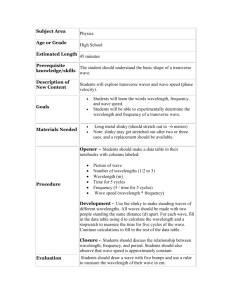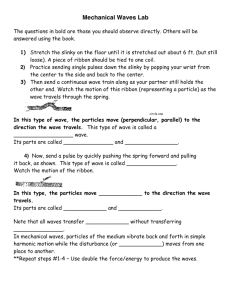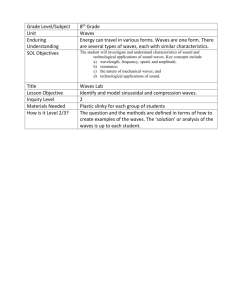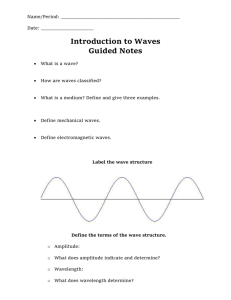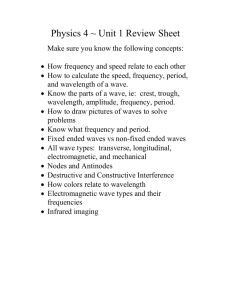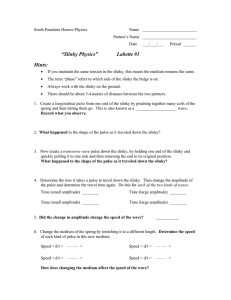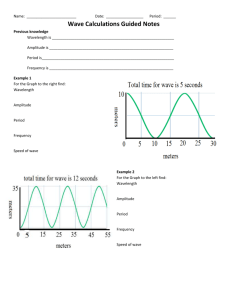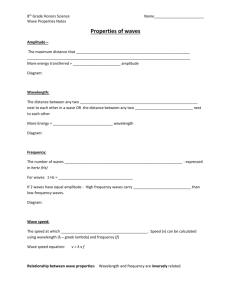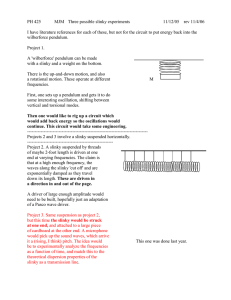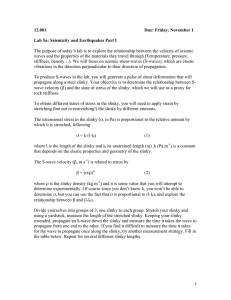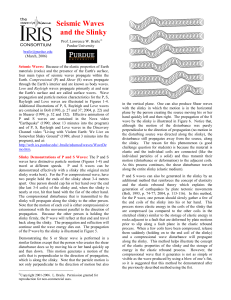WavePropertiesLab
advertisement
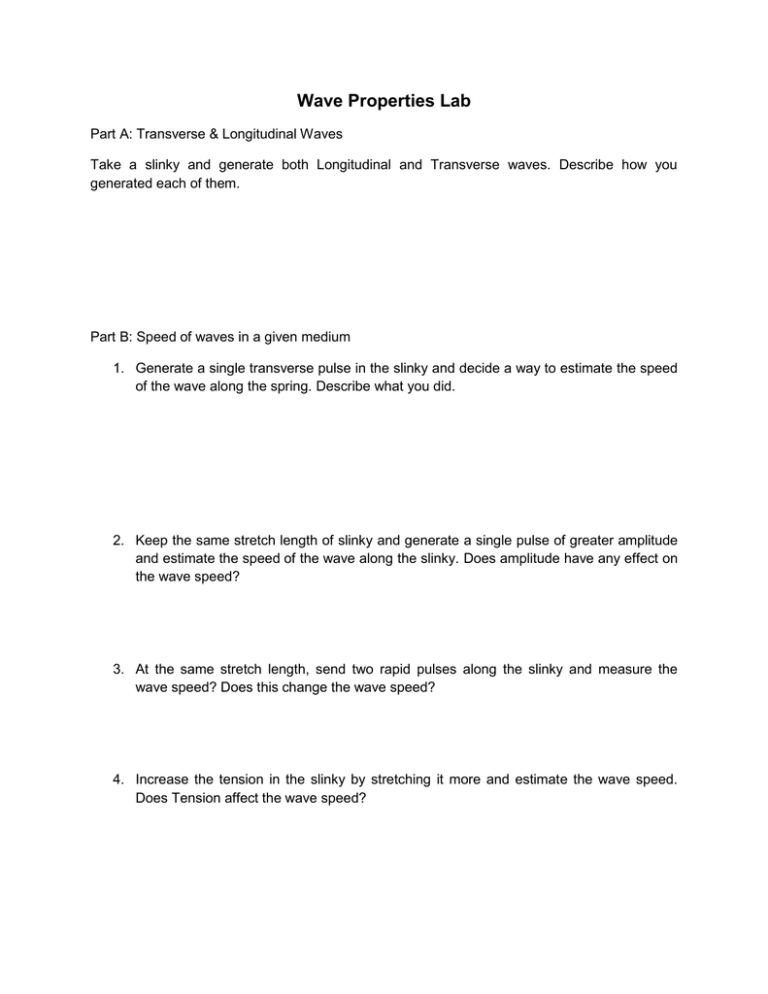
Wave Properties Lab Part A: Transverse & Longitudinal Waves Take a slinky and generate both Longitudinal and Transverse waves. Describe how you generated each of them. Part B: Speed of waves in a given medium 1. Generate a single transverse pulse in the slinky and decide a way to estimate the speed of the wave along the spring. Describe what you did. 2. Keep the same stretch length of slinky and generate a single pulse of greater amplitude and estimate the speed of the wave along the slinky. Does amplitude have any effect on the wave speed? 3. At the same stretch length, send two rapid pulses along the slinky and measure the wave speed? Does this change the wave speed? 4. Increase the tension in the slinky by stretching it more and estimate the wave speed. Does Tension affect the wave speed? Part C: Wavelength & Frequency: The rate at which the spring is shaken determines the frequency of the waves. Using slinky set up a transverse wave train, a series of pulse at one frequency and note the wavelength. 1. Now set up a transverse wave train at a higher frequency and another at lower frequency, and notice the wavelength in each case. Note your results 2. What is the relationship between wavelength and frequency for a given stretch length? What remains constant for a given slinky at same stretch length? Part D: Wave Interference: 1. Have two partners hold springs on either end and send pulses on the same side with same amplitude. Note what you observe at the center of the slinky. 2. Now have the partners repeat the above, except they send pulses on opposite sides of the slinky line. Note what you observe at the center of the slinky. Part E: Reflected Waves 1. Have a partner hold one side of the slinky very tightly and the other send a sharp pulse. The wave reflects from the fixed end. Note which side the amplitude is after reflection. 2. Tie a string to one side of slinky and hold it loosely. Have a partner send another sharp pulse down the spring. When the pulse is reflected, note which side the amplitude is.

